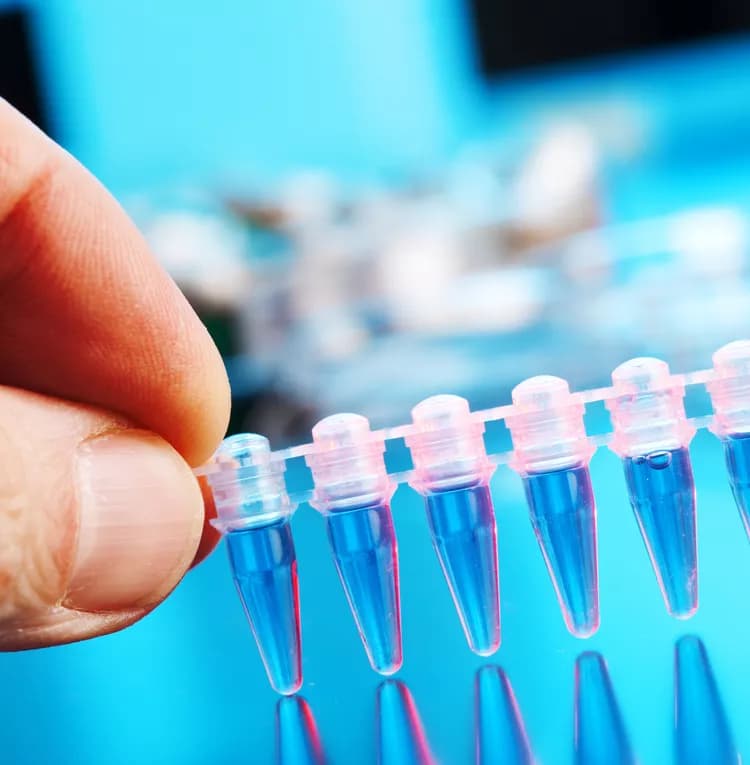
Scientists Find New Genetic Influences On Fat Distribution
Dr. Michael Olivier, Chair of the Texas Biomedical Research Institute's Genetics Department and Dr. Jack Kent, Staff Scientist in the Genetics Department, are part of a group of researchers led by Dr. Audrey Chu in the Division of Intramural Research, NHLBI, NIH, who have identified new gene regions of the human genome that influence fat localization in the human body and ectopic fat , or the accumulation and distribution of fat outside typical fat stores. These findings contribute to a growing understanding that a person's risk of disease is impacted not just by carrying excess fat, but also by where that fat is stored.
Ectopic fat is often found surrounding the abdominal organs, in the liver and around the heart. An increase in ectopic fat has been linked to serious metabolic diseases, such as heart and liver disease and diabetes. For example, fat accumulation in the abdomen is linked to higher rates of heart disease, but why one person accumulates more fat in his/her abdomen is not as well understood.
While scientists have previously found that accumulation and distribution of ectopic fat plays a role in the development of disease, it has not been understood how genes play a role in ectopic fat deposition. The findings, published online in the journal Nature Genetics, point to a clear genetic regulation of fat distribution. In addition to the seven unique genetic regions found, researchers also determined that body fat distribution was a heritable trait, with genetics being responsible for 36-47 percent of the difference in fat accumulation between individuals.
Kent and Olivier participated in the study by providing CT scan data from the Metabolic Risk Complications of Obesity Study, a collaboration between the Medical College of Wisconsin and the TOPS Nutrition and Obesity Research Center at Texas Biomed. As Co-director of the TOPS Center, Olivier said he sees promise in these research findings as a starting point for new TOPS studies.
"It will be critical in the future to look at how these genes influence not only weight gain and fat accumulation but also weight loss. Understanding the underlying genetic process could help explain the variability in diet success and response to weight loss treatment, helping to determine whether these genes impact success of weight loss," Olivier said.
He also highlighted the specificity of the research in that the genetic regions found are fat specific. While genes affecting weight and BMI have been found, using them as therapeutic targets is more challenging as they don't target a specific cause. These genetic regions specific to fat could prove beneficial as therapeutic targets.
"Understanding how these genes play a role in the development of fat distribution could provide answers not only for how to preemptively approach ectopic fat development but also how and where to target a potential therapy after fat has accumulated, essentially these could be targets for both preventive and therapeutic therapies," He added.
Researchers analyzed multiethnic samples from more than 18,000 people. The findings concluded that ethnicity played little role in the link between these genes and ectopic fat distribution.
"A lot of genetic studies highlight ethnic differences related to both weight and metabolic disease," Olivier said. "This study points to a more universal distribution, regardless of ancestry, which again could prove useful when developing therapeutics."
Materials provided by Texas Biomedical Research Institute. Note: Content may be edited for style and length.
Disclaimer: DoveMed is not responsible for the accuracy of the adapted version of news releases posted to DoveMed by contributing universities and institutions.
Primary Resource:
Chu, A. Y., Deng, X., Fisher, V. A., Drong, A., Zhang, Y., Feitosa, M. F., ... & Dyer, T. D. (2017). Multiethnic genome-wide meta-analysis of ectopic fat depots identifies loci associated with adipocyte development and differentiation. Nature Genetics, 49(1), 125-130. DOI: 10.1038/ng.3738
Related Articles
Test Your Knowledge
Asked by users
Related Centers
Related Specialties
Related Physicians
Related Procedures
Related Resources
Join DoveHubs
and connect with fellow professionals

0 Comments
Please log in to post a comment.